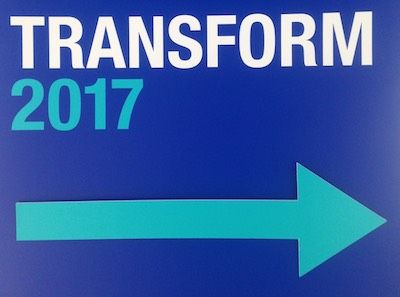Experts Agree: EMR Systems Need to Be Revamped
In a panel at the Mayo Clinic Center for Innovation's Transform conference, healthcare leaders went so far as to call current systems "crude" and "corrosive."

Electronic medical records (EMR) are “ripe for disruption,” according to a panel at the Mayo Clinic Center for Innovation’s Transform conference.
The demands of current systems concerned experts for multiple reasons. They argued that they sacrificed patient time and even encouraged a measure of dishonesty in clinicians.
Danielle Ofri, MD, PhD, of New York University School of Medicine, decried that clinicians are required to check boxes as to whether they discussed depression or domestic violence with every patient. They don’t always do that, she said.
“When you force people to cut corners, to lie, to copy and paste when they know that it’s wrong, it’s corrosive to healthcare,” Ofri added.
To demonstrate the patient engagement problem, Laura Adams, president and CEO of the Rhode Island Quality Institute, brought up a child’s drawing that she had seen. The picture depicted a doctor visit in which the child was sitting on the table while the doctor was leaned over their computer “like a hunchback.”
The group agreed that, in addition to distracting from time clinicians should be able to devote to their patients, EMR issues also spill over into their personal lives. Many doctors go home with a few hours of chart work each night, according to Gianrico Farrugia, MD, CEO of Mayo Clinic Florida and vice president of Mayo Clinic. Additional chart work contributes to frustration and burnout.
While no one wants to go back to stacks of paper, Ofri said, “you can’t leaf through an EMR” to find precisely what you’re after. She said the “crude” designs of the systems didn’t take into account enough physician input.
“I want those IT guys to sit with me and see a patient with 18 prescriptions plus supplies, and how long it takes to do that,” Ofri said of the data entry process.
But subpar EMR systems aren’t an insurmountable problem, Faruggia said. He said any new systems will need filters to make them more searchable and understandable. The sheer volume of data can be confusing, and misinterpreted data can hurt patients in the form of conflicting prescriptions or redundant treatments, he said.
Despite the widespread griping, he was optimistic about future designs.
“The next generation of EMR has to be fundamentally different,” he said. “The backbone has to be different.”
Healthy Bottom Line: The Trouble With SDOH Programs and the Secret to Improving Them
September 28th 2021Several problems exist with current programs that address social determinants of health (SDOH); however, a new social model aims to combat these issues and improve the programs’ effectiveness.